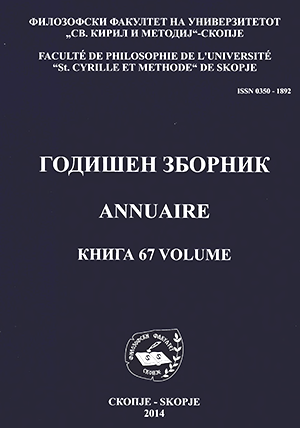THE NIGHT AS A MOTIVE IN BYZ ANTINE HISTORY AND POLITICS
Keywords:
THE MOTIF (NOTION) NIGHT, BYZANTINE POLITICS, HISTORIOGRAPHY, HAGIOGRAPHY, MIRACLES, RULERAbstract
According to the Byzantine time measurement, night starts at the moment when the sun sets and lasts until the moment when the sun rises. Basically, this period has been divided into several parts: dusk or twilight; evening, night, and dawn (morning). According to Byzantine beliefs, night time is reserved for rest from the physical activities as well as for body recovering for the next day. Night also has a magical and mystic power for Byzantines and is often a favorite topic among a great number of writers and historiogi'aphers who tried to attach larger religious significance to certain events and relate them to individual illusions and dreams of some historical figures. This is most evident in biographies and chronicles from that period.
Due to the limited space and the voluminous historical material, this article presents only a part of the night motives previously mentioned. Naturally, let us start off with the first Byzantine emperor Constantine the Great, his illusions snd dreams about the Christian sign (symbol) and the dream about his mother discovering the Holy Cross on which Jesus was crucified. We wail also tty to point out other such events concerning the construction of churches and monasteries as well as the discoveries of holy relics.
In the second part of this article, we will point out a segment of Byzantines politics in which the night has a special place. Here, above all, we should discuss certain missions and the behavior of Byzantines missioners during the night, as well as certain military commanders' decisions to used the night as a moment for achieving victory against enemies or eliminating an usurper, a tyrant, or even overthrowing the rider off the throne.





